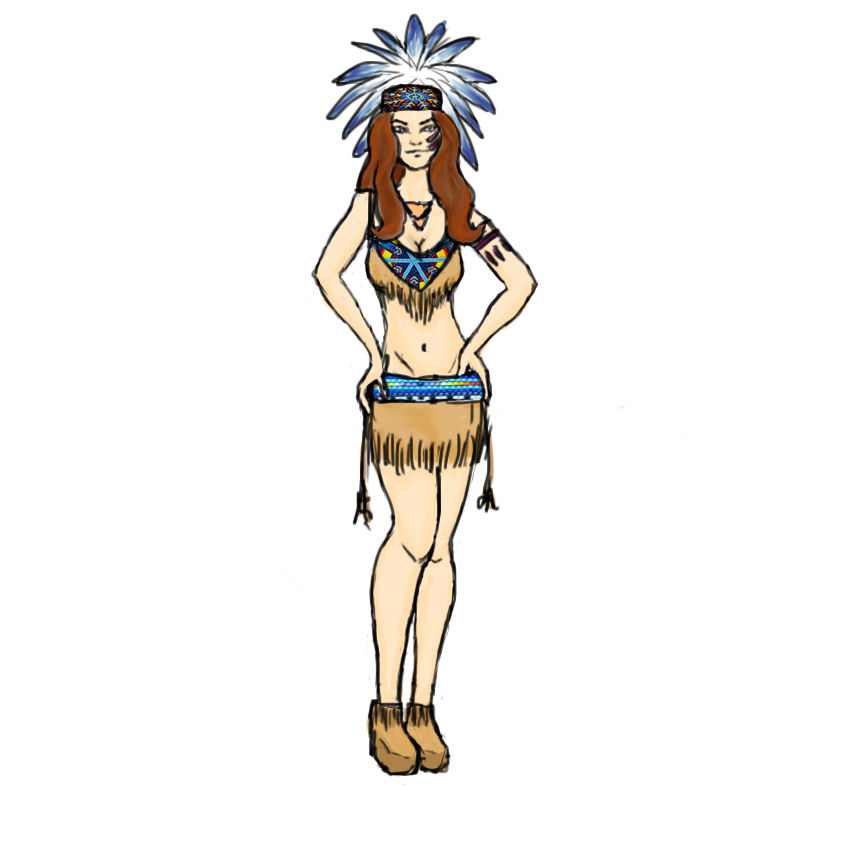Halloween costumes: culturally appropriative, not creative
October 28, 2015
This is an opinion article and does not necessarily reflect the views of The Tulane Hullabaloo.
Halloween in New Orleans, unsurprisingly, is a blast. In this city, people take any opportunity to dress up, making Oct. 31 the pinnacle of wild costumes in one of the most festive cities in the country. But along with the fun and glitter, it’s incredibly easy to ruin someone’s Halloween night. Among the large number of potential costumes out there, a small fraction are simply racist. Cultural appropriation is the act of adopting some aspect of a culture that isn’t yours. On the surface, it seems harmless enough, but treating other cultures (especially marginalized cultures) as a costume is just wrong.
The more obvious mistakes, such as blackface, are easy to avoid. Someone stepping out on Halloween night with their face painted that way will instantly be hit with some serious, and justified, side eye. It brings to mind the colloquialism, “Come with blackface, leave with no face.” That being said, even with such a common distaste for this visible oversimplification of what it means to be black, many people still wear their choice of offensive cultural representations without understanding why it’s wrong.
An easy example is the “Sexy Pocahontas” costume or any other variation of Native American dress. These costumes (along with almost every other culturally appropriative dress) is largely inaccurate and trivializes increased rates of sexual assault for Native American women. Additionally, when people put on a feathered headdress, they usually disregard the ceremonial context behind it. These symbols are a point of honor and pride, awarded to leaders within the tribe or those who performed some great deed. Wearing one as a white person is dismissing the value of earning a bonnet, as well as playing into a whole host of other issues. This costume ignores historic, systematic violence against Native American societies.
Dressing in stereotypes can strengthen these negative interpretations. Seeing costumes that boil incredibly diverse and complex cultures down to sexy stereotype distorts public perception of these marginalized cultures. The consequences of this are clear. It’s easy to be prejudiced against someone if all you know of them and their culture are racist stereotypes.
Offensive costumes are not limited just to culturally exploitative ones, though those tend to make up the majority. Dressing up as Caitlyn Jenner for Halloween, especially if you are a cisgender man, is incredibly offensive. It contributes to the idea that transgender identities are just a costume. In the past, people dressed as football player Ray Rice, reducing the violent abuse against his then-fiancée Janay Palmer to a funny anecdote, as though it’s something to laugh about while you nurse your cup of vat.
Those of us who experience the benefits of our skin color when we’re searching for jobs or when people interact with us in public do not experience racism. Maybe we encounter prejudice at times but we do not experience blatant, majority discrimination. When we dress as an “illegal immigrant” or a “sexy Hindi,” we can take off the costume at the end of the night. We do not have to struggle with all of the uphill battles that marginalized cultures do. So, when you are coming up with a clever, funny, sexy costume for Halloween, avoid the ones that contribute to the problematic understanding of race in our country. More importantly, avoid ruining some else’s night.
Kathryne is a junior at Newcomb-Tulane College. She can be reached at [email protected].























Leave a Comment